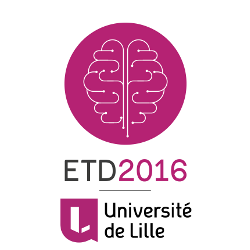Research data management has become an important topic for research institutions around the world. More and more funders demand open research as well as data management plans. In accordance, universities start implementing data policies to further proper data handling. PhD students are confronted with these new expectations.
Humboldt-Universität zu Berlin wanted to shed light on doctoral candidates' current research data management. Therefore a short survey was conducted in 2015 with about 190 participants. The non-representative results show that a majority of the respondents uses digital research data for their dissertations. Of those doctoral candidates only a minority has a concept for archiving their research data. Even though preservation is unclear, most PhD students with digital data plan to make it open. Research data management training within the doctoral program is therefore needed to improve data literacy [1] and the management of research data.
In compliance with these results a workshop with doctoral candidates was organized in winter semester 2015/16. The training was prepared and advertised in cooperation with Humboldt Graduate School. The reception was outstanding and emphasizes the interest as well as the need for guidance. More than thirty doctoral candidates registered for the workshop. Mainly PhD students from biology, medicine, physics and agriculture took part. Though, doctoral candidates from the Humanities attended, as well. The curriculum was divided into a general introduction into research data management and a discipline-specific group session. After a short brainstorming about research data, the group session addressed relevant repositories, file formats and metadata standards.
During the workshop, especially PhD students from the humanities expressed difficulties to name their produced or analyzed research data. They also mentioned legal concerns more often than other doctoral candidates. Students from the sciences had a better understanding of research data management. Reservations against data sharing were rare among them. Cooperation and the impact on future research played a larger role.
The workshop feedback showed, that not only theoretical guidance and information material are of importance. PhD students desire support in their daily research data management. Practical tools and software solutions need to be offered. Actively supporting research tools like digital laboratory journals, annotation and file sharing software have to be secure, easy to use as well as legally unproblematic. To improve data skills, it takes support before, during and after the dissertation. Hence, more workshops and technical changes in the context of the project eDissPlus, funded by the German Research Foundation (DFG), are underway.
Literature:
1. Jones, S.; Guy, M.; Pickton, M. Research Data Management for Librarians. 2013, Available online: http://www.dcc.ac.uk/sites/default/files/documents/events/RDM-for-librarians/RDM-for-librarians-booklet.pdf (accessed on 22.01.2016).
On the author:
Kerstin Helbig is research data management coordinator at Humboldt-Universität zu Berlin. In her consultative capacity, she assists researchers in the management of their research data and organizes training as well as information sessions. In her former position she was a research associate at GESIS – Leibniz Institute for the Social Sciences. In the da|ra project – an allocation agency for Digital Object Identifiers (DOI) in Germany funded by the German Research Foundation (DFG) – she was responsible for the further development of the used metadata schema. In addition, she supported researchers in the registration of their research data. Through her study of social sciences and many years of experience at GESIS, she has profound knowledge in the handling of research data.
- Picture
- Presentation
- Other

 PDF version
PDF version

